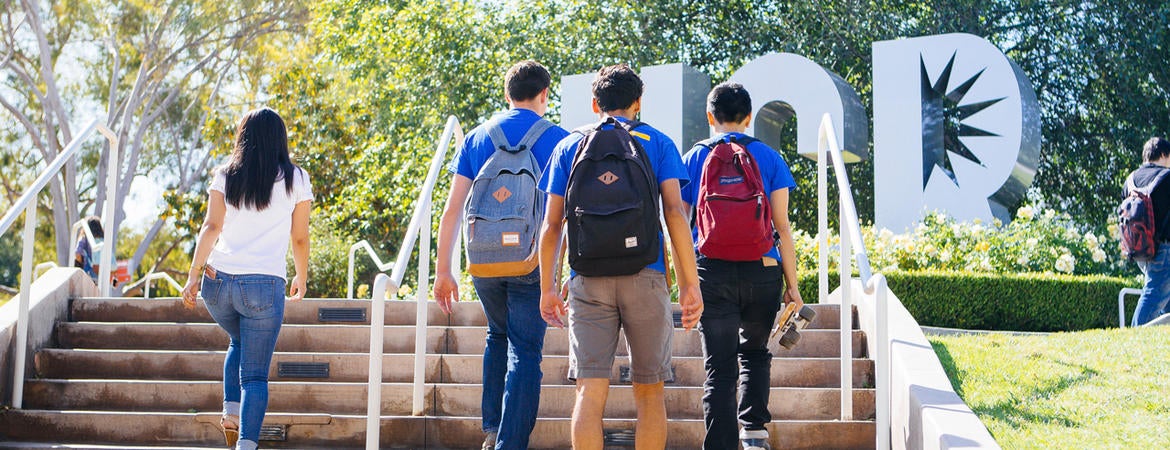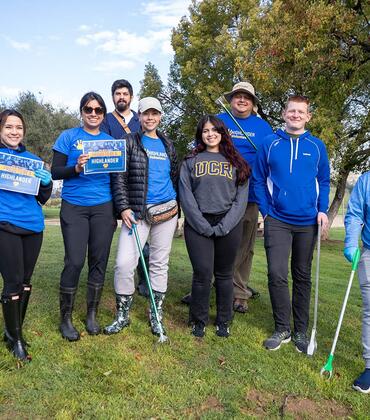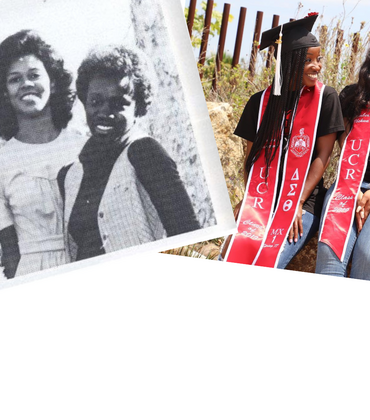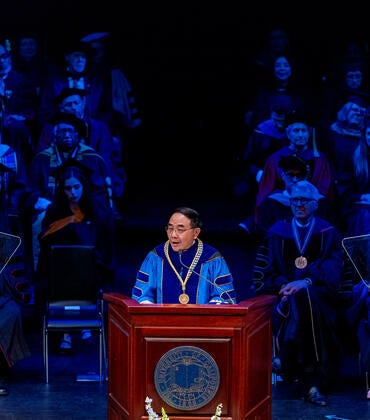
Karina Gutierrez serves as UCR’s first full-time immigration attorney where she serves more than 600 students eligible for legal assistance, including those with mixed immigration-status families.CARLOS PUMA
California is home to approximately 2.5 million undocumented immigrants — more than any other state in the U.S. Many arrived as children and now face challenges to pursuing higher education and career opportunities as young adults.
At the University of California, Riverside, Karina Gutierrez is working to eliminate some of those challenges.
An advocate for human rights in the face of exploitation, trafficking, and other social issues, Gutierrez serves as UCR’s first full-time immigration attorney. Prior to arriving at UCR in February, Gutierrez was an interim lead attorney for the Public Law Center’s Immigration unit, a nonprofit providing free legal services to low-income residents and other nonprofits in Orange County.
Due to the increasing number of undocumented students living in the U.S., UCR asked the UC Immigrant Legal Services Center for more assistance. Gutierrez arrived at UCR on Feb. 28.
Established in November 2014, the UC Immigrant Legal Services Center operates out of the UC Davis School of Law and is the UC’s first-ever program to provide legal services across the system rather than on a single campus. The center provides free, high-quality legal assistance to undocumented students and their immediate family members at UC campuses without law schools.
To help students achieve their academic goals and full potential, the center is working to employ a full-time attorney at each campus. Previously, UCR shared an attorney with UC San Diego.
“I am so thrilled and blessed to be in a position to offer quality services to students without them having to worry about the accuracy of the information they receive, nor the cost involved for the services we provide,” Gutierrez said. “The UC Immigrant Legal Services Center cares about quality service. That’s why I wanted to be part of this team.”
Established by President Barack Obama in June 2012, this month marks the sixth anniversary of the Deferred Action for Childhood Arrivals program, or DACA, which allowed individuals to receive a renewable two-year permit to live, study, and work in the U.S., granting protection from deportation.
When President Donald Trump rescinded DACA in September 2017, hundreds of UCR students were impacted by the decision. The UCR community hosted roundtable and townhall meetings with faculty, students, and staff, while University Advancement and Student Affairs created the Dreamer Student Support fund to assist with the $495 filing fee required per renewal application when the Trump administration allotted one month for DACA recipients to renew their status for an additional two years.

Congressman Pete Aguilar (D-CA 31st District) with UCR DACA students. Aguilar met with students to discuss his leadership and legislative updates on the DACA policy.JACQUELYN I. GONZÁLEZ
UCR’s Undocumented Student Programs office said the rate of DACA renewal applications has increased since Gutierrez arrived on campus.
In her first month and a half, Gutierrez submitted 32 applications to the Department of Homeland Security’s U.S. Citizenship and Immigration Services division. Before she started, the office processed an average of 15 renewal applications per month going back to September.
Gutierrez also handles naturalization and family-based petitions, along with providing full legal consultations.
“Having a full-time immigration attorney on campus has been a critical asset to our students,” said Ana Coria, coordinator of Undocumented Student Programs at UCR, whose team ensures students have the support necessary to continue and complete their education.
Gutierrez currently serves 600 undocumented students, but hundreds more are eligible for legal assistance, including those with mixed immigration-status families. She meets with each student to perform a risk-benefit analysis, navigate documentation status, and assess eligibility for programs that can serve as pathways to permanent forms of relief, such as legal residency and citizenship. From there, Gutierrez provides application assistance and corrects errors that have hindered students from obtaining legal residency and put the legal status of some at risk.
“I have an opportunity to empower students,” Gutierrez said. “When you know your situation, it becomes more manageable, and students can continue to accomplish their academic and career goals irrespective of their status. That’s why it is so critical for them to have access to legal services and to know their rights.”
Beyond working one-on-one with students, Gutierrez said her role involves educating the campus and community about how immigration works. She also hopes to be a resource for faculty and staff to help both groups better understand students’ experiences.
“We need a middle ground between the law and society,” she said.
While initial DACA applications can no longer be submitted, renewal applications are still temporarily allowed due to three injunctions from California, New York, and the District of Columbia. Gutierrez can be reached at 3148 Hinderaker Hall, by phone at (530) 574-9134 or by email at kgutierrez.ucimm@law.ucdavis.edu. For DACA assistance, contact Ana Coria at 224 Costo Hall, by phone at (951) 827-2193 or by email at Ana.Coria@ucr.edu.




